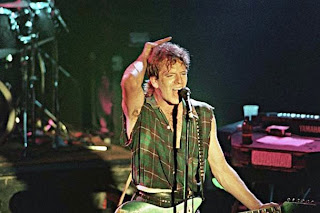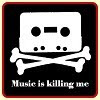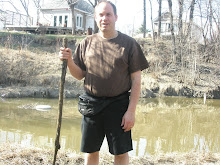"I love that album, Shot of Love. There's no production. You're in a room hearing Dylan sing. "
From the lounge, to the parlour, to the front porch to the garage, the character of certain types of music can be defined by the exact location of its making. Hence, calling Bob Dylan and the Band's 1967 demos recorded in the house known as Big Pink in Woodstock, New York The Basement Tapes is both location-specific and descriptive of the music's sound - a loose, spontaneous sound, simultaneously rooted in the past and branching out into unknown directions.
The Multitude of Sins' music comes from the nave. The nave (Latin for “ship”) is the long narrow hall that runs from the entrance to the altar in Gothic-styled churches (see here). The band debuted these five Dylan covers sitting at the front of the nave, seated in a semi-circle with their backs to the audience. They chose these specific songs to carry the congregation through the liturgy of an Anglican Mass (see here). Throughout the service, the band remained obscured, the music supporting the proceedings rather than becoming them.
The music heard from the nave that night had the warmth of Dylan and co.'s basement work but rather than being loose and spontaneous, The Multitude of Sins' were polished and tight. Interestingly, such a unified sound comes from a somewhat peculiar aggregation. Mike Koop (guitar, lead vocals), who leads power-pop band, Kicker, and Lee Charles Garinger (bass) ex-member of glam-rockers, the Harlots, are both holdovers from Winnipeg's underground music scene of the 90's. Larry Campbell* (backing vocals) and Allen Fehr (piano) are lifelong musicians, each having logged over thirty years of session work and hard-gigging. Finally, anchoring this assemblage on the cajón (an amplified wooden box) is Bobby James Hobson, a native of the Caribbean island of St. Kitts and long-time drummer/vocalist for dance band Caraballo.

The band's choice of Dylan songs brought to mind the old Columbia slogan, “No one sings Dylan like Dylan”. It is true no one can actually perform quite like Dylan, with his playing and his phrasing. Therefore, each Dylan cover ends up becoming an original of sorts, or as class of '77 punk singer/songwriter Tom Robinson said, "Dylan's songs are not arrangement-dependent; anyone can cover them." Which is not say that covering Dylan was easy, for as Koop uttered when early rehearsals bogged down, "Dylan writes songs with only three chords but he plays them in really odd ways".
The following Dylan songs were played that night. For the two previews, click the play button under the songs, to dowload the entire e.p. scoll down the page.
Lay Down Your Weary Tune
This joyous, almost surrealistic hymn to the music of nature dates from 1964 and is, strangely, an outtake from Dylan's most po-faced album, The Times They-Are-A-Changin'. In this version, the rich backing vocals of the group, in particular, Larry Campbell's, intertwine with Koop's distinctive voice (akin to Dylan's sweeter Nashville Skyline voice) in startling and wonderful ways, creating a country-gospel feel.
Every Grain of Sand
A Dylan Masterpiece, from the imperfect but rewarding Shot of Love album of 1981, which might indeed stand with the works of Rembrandt. Here the band delivers a stirring version, played with fire and subtlety.
Father of Night
Half a song written for an Archibald Mcleish play (if Dylan's autobiography, Chronicles, is to be trusted) subsequently tacked onto the 1970 album New Morning album is here re-arranged and fleshed out into a rollicking country-rock fusion that Gram Parsons might understand.
Pressing On
This slow-burning track originates on one of Dylan’s most reviled albums, 1980's Saved. The M.O.S.' version, partly inspired by John Doe's illuminating if imperfect version from the film, I'm Not There, builds and builds in intensity, all the way reminding of us of how effective a writer of gospel songs Dylan has been.
I Shall be Released
After his mysterious 1966 motorcycle accident Dylan wrote this metaphor of imprisonment and freedom, which has developed into an anthem of near universal resonance. The long-unreleased version that Dylan and the Band recorded in the basement of Big Pink back in '67 is clearly the M.O.S.' model but they bend and shape the song till, ultimately, they fashion a moving version all their own.
The band maintained both their semi-circular placement and their use of intimate settings when they recorded the entire set using just two microphones in the living room of pianist Allen Fehr. So now you can take a seat near the front of the nave, even if you haven’t done so for a long time.
Download the Multitude of Sins - The Dylan Mass
(MRML recommends WinrRAR for unpacking your downloads)
________________________________________________________________
* This, on your left, is Larry Campbell. He is not the same Larry Campbell, on your far right, who played guitar for Dylan from 1998-2004.


Nor, as has been claimed, is he either fellow Winnipegger, Randy Bachman or the King of the Ewok village.





.jpg)

































.jpg)








































